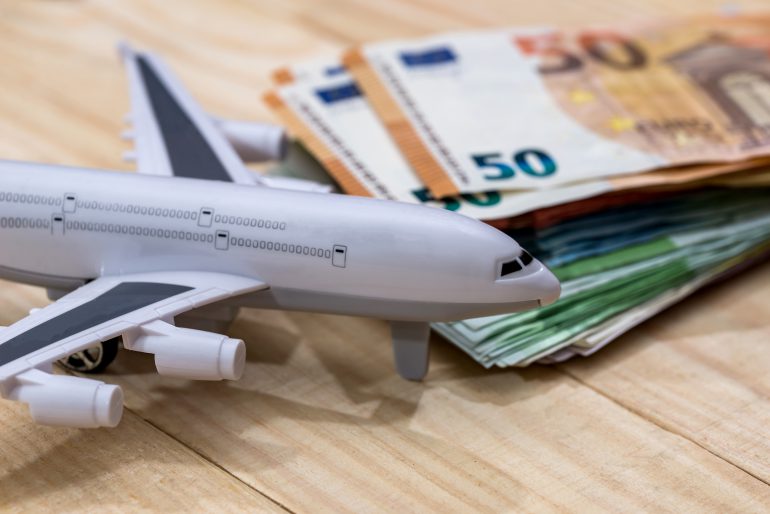The time of dirt-cheap tickets is behind us. Flying to Barcelona, Paris or other European cities for a few bucks will no longer be an option. The increase of ticket prices does not come out of the blue, according to Metro Nieuws. Airlines have warned that price increases are imminent due to environmental measures that will be introduced in the coming years.
For example, the trading rights to emit greenhouse gases are being tightened up by the European Commission. Since 2005, airlines, like other polluters, have had to hold emission rights in order to be allowed to emit CO2. Until now, the vast majority of those allowances were free, but that will be phased out from 2024 until there are no more free allowances at all in 2027, reports newspaper Het Parool. Companies will have to buy their allowances at an annual auction from the European emission authorities or from other emitters. Because Brussels is reducing the number of emission allowances by 4.4% annually, the price will rise considerably.
“Based on the current situation, this will result in a surcharge of €20 to €50 euros per ticket. For example, the Schiphol-Barcelona flight will be €47 more. At the same time, companies such as Ryanair and Easyjet will continue to sell low-cost tickets as a marketing tool,” explains Stef Driessen, tourism economist at ABN AMRO. Thus, a flight to the French Riviera could cost almost €21 euros more, to Lisbon €30 and to Athens €34.
The main idea behind the new measures is to force emitters to become more environmentally friendly. For decades, airlines have not had to pay taxes for the use of kerosene, the fuel used by aviation, while the electricity used by a train has to be taxed. The difference between a train ticket and an airplane ticket will become smaller due to the measures, reports NOS. “Kerosene has been tax-free since 1944. Thanks to the new environmental measures, the burden on the environment is also included in the price of an airline ticket,” explains Driessen.
Flying to Turkey becomes a good option
An unintended effect of the European emission measures is that the price of air travel to popular holiday countries outside the EU, with Turkey in the lead, will be more favourable than those to Spain, Portugal and Italy. After all, EU emissions trading only applies to flights between European airports. “Companies have to pay emission allowances from Amsterdam to Rome, but not for a flight to New York,” says a spokesman of the Dutch Emissions Authority, which is responsible for the allowances.
The question is whether the higher prices will also lead to fewer flights. The main hope is that there will be more conscious flying, says Driessen. “In general, a holiday is the last thing that is cut from people’s budgets, but perhaps more attention will be paid to longer stays instead of short city trips.”
Holidays within the Netherlands on the rise
Dutch people will continue to show more interest in holidays in the Netherlands, as compared to the last year before the Covid crisis. This is what the Netherlands Bureau for Tourism & Congresses (NBTC) expects on the basis of its International Holiday Monitor. According to the NBTC, the Dutch booked more than 28 million overnight stays in their own country in 2022, 11% more than in 2019. For 2023, the bureau expects an increase of 2%. In addition to the increased prices for airplane holidays, respondents also indicate that they choose the Netherlands because of the possibility to stay in a quiet place.
Written by Raphael Perachi Vieira
